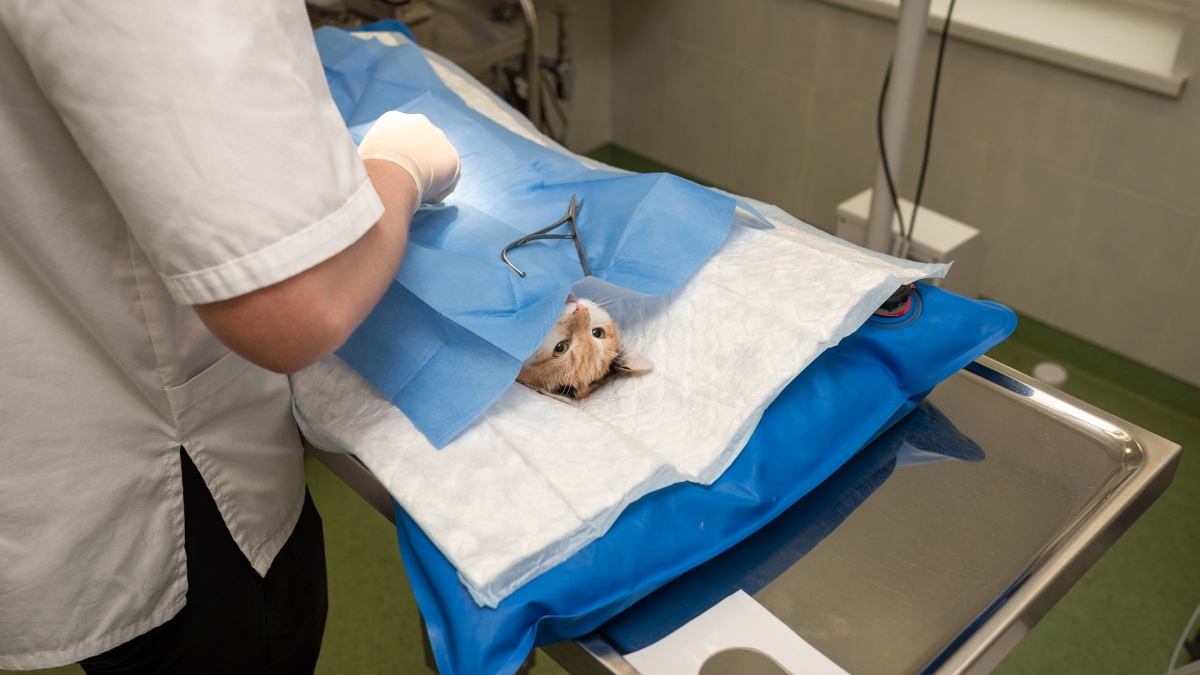Pet adoptions soared during the pandemic. Many shelters ran out of animals. There were 26,000 more pet adoptions nationwide in 2020 than the year before, according to Shelter Animals Count, a group that tracks about 500 rescue organizations across the country.
More pets means more trips to the veterinarian. And thus a need for more vets.
Arizona State University is rising to that challenge with a timely introduction of an online offering of its pre-veterinary program, preparing undergrads for vet school.
“I believe it's the only one in the country right now,” said Associate Professor Doug Green, the Polytechnic campus faculty of science and mathematics administrative leader in the College of Integrative Sciences and Arts.
Right now, the program is wildly popular. It’s known for small classes and dedicated faculty.
“It'll be our biggest (program) by the end of the academic year if trends continue,” Green said.
There are fewer vet schools than medical schools in the country, and they’re hard to get into. And the university knows that.
“We do have a lot smaller classes,” Green said. “We do have a better student-faculty ratio. That's actually helpful. And we have some vets that actually teach for us. … They provide a lot of perspectives about what it was like for them to get into the best school and provide information about what one can do to make their application more attractive to that school. It's a pretty competitive process.”
Nationwide, demographics are pointing to the fact that more and more people are moving into the age group where they want to get a dog or a cat. For the vet, that requires a different approach than they would take with livestock operators.
ASU is working on some internship opportunities that will be available to all students, both online and in person.
“The internship process is actually very important to getting into that school as well, because they're looking for people with some experience prior to getting into that school,” Green said. “And so that's where they'll get a lot of experience working with animals and, just as importantly, working with the animal 'parent.' Sometimes, some things people think about vets is only focusing on the animal itself. … Part of the vet experience now has become not only how to make the animal well, but also to be supportive of the animal’s owner or the 'pet parent.' So there's that aspect as well that our students are going to be exposed to in some of these internships.”
The pre-veterinary medicine concentration is within the applied biological sciences major. The online degree will be available starting in fall 2021. The only course that needs to be taken in person is organic chemistry. It’s a 200-level course that could be taken at a community college and transferred to ASU.
A second option for that course is an on-campus at ASU offering.
“Something like 90% or more of all ASU Online students come to ASU for those two weeks of organic chemistry, rather than taking it at an institution closer to their home,” Green said. “They get on the plane, they come here, they spend two weeks in class and then they fly out again.”
Some students begin the pre-vet track only to find different paths that still relate to animal care.
“It's not unusual for students to change majors,” Green said. “Sometimes they do. They'll get in there and they'll say you know, big animals or small animals, not for me, but I want to be associated with animals in some way. So oftentimes they'll slide over into a wildlife management program so they still have that connection with animals, but it's in a very different kind of way. … We have discussions with them and on a one-to-one basis and help them make other choices. But our primary goal is to get students into that (veterinary) school.”
Top image: by Arvydas Lakacauskas from Pixabay.
More Science and technology

Diagnosing data corruption
You are in your doctor’s office for your annual physical and you notice the change. This year, your doctor no longer has your health history in five-inch stack of paperwork fastened together with…
Large-scale study reveals true impact of ASU VR lab on science education
Students at Arizona State University love the Dreamscape Learn virtual reality biology experiences, and the intense engagement it creates is leading to higher grades and more persistence for biology…

ASU-led space telescope is ready to fly
The Star Planet Activity Research CubeSat, or SPARCS, a small space telescope that will monitor the flares and sunspot activity of low-mass stars, has now passed its pre-shipment review by NASA.…


